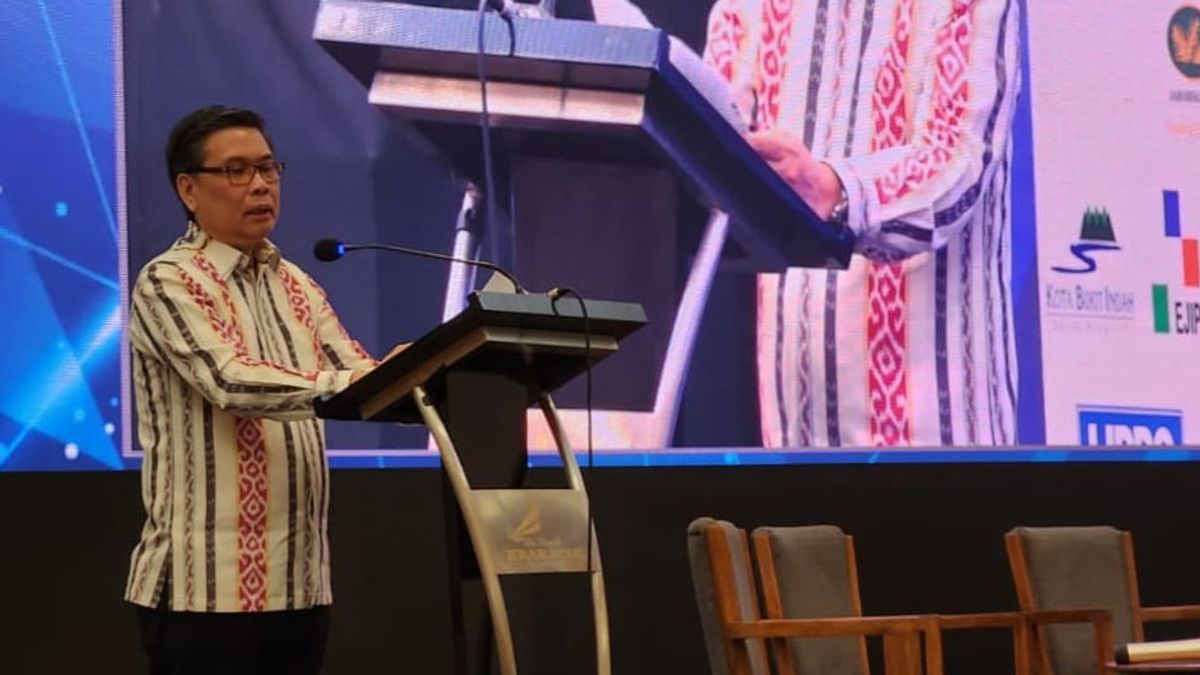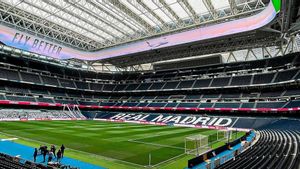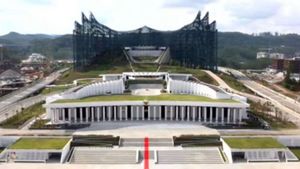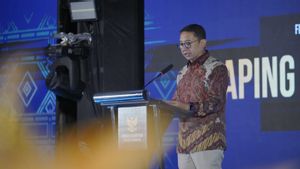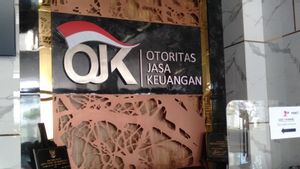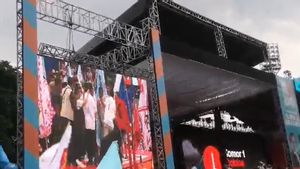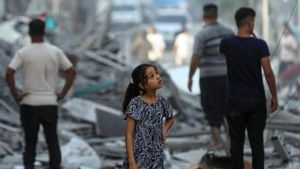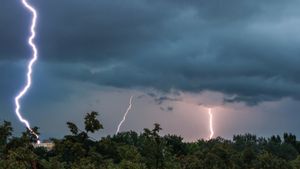JAKARTA - The Indonesian Industrial Estate Association (HKI) stated that in facing global competition, Indonesian industrial areas are faced with various challenges.
The General Chairperson of the Indonesian Industrial Estate Association (HKI), Sanny Iskandar in his written statement, Thursday, July 25, revealed that the challenges faced are competition with other countries in attracting foreign investment, and the need for improved infrastructure and technology to support industry 4.0.
"Improving the quality of human resources to be able to compete in the global market is also a challenge. Then, the implementation of policies that support a better investment climate," said Sanny, at the HKI National Working Meeting (RAKERNAS) which was combined with Business Talk activities with the theme "Increasing Investment Competitiveness in Facing Global Competition by Optimizing the Role of Industrial Areas" which will be held on July 24-27, 2024 in Semarang.
However, Sanny continued, behind these challenges, there are also various opportunities that can be utilized, such as the large market potential in Indonesia and the Southeast Asia region, increased regional cooperation through various free trade agreements, the use of new technologies to increase industrial efficiency and productivity, and government support in the form of incentives and ease of doing business.
According to Sanny, to face these challenges and take advantage of these opportunities, close collaboration is needed between the government, the private sector, and all relevant stakeholders. HKI is committed to continuing to be a bridge between various parties in creating a competitive and sustainable industrial ecosystem.
At the 24th National Working Meeting, various policies and strategies will be discussed to increase the competitiveness of Indonesia's industrial areas.
Several initiatives that will be discussed include the development of better and more modern infrastructure, improving the quality of education and training for workers, and the application of industrial technology 4.0 in industrial areas.
"Business Talk and the 24th National Working Meeting of the Indonesian Industrial Estate Association are expected to be an important momentum to strengthen the role of industrial areas in facing global competition. With close collaboration and the right strategy, Indonesia's industrial areas can continue to contribute to increasing investment competitiveness and encouraging sustainable economic growth," he concluded.
Meanwhile, this activity also marks 50 years of industrial area contribution in Indonesia's economic development. HKI is an organization for developers and managers of industrial areas in Indonesia with 114 industrial areas as members.
The XXIV Business Talk and Rakernas aim to evaluate the role and contribution of industrial areas over the past 50 years. Then, identify the challenges and opportunities faced by industrial areas in facing global competition. Then, discuss strategies and innovations to increase investment competitiveness through optimizing the role of industrial areas. In addition, it also encourages collaboration between the government, private sector, and other stakeholders in creating a conducive investment climate.
اقرأ أيضا:
This year, HKI celebrates the existence of 50 years of industrial areas that have contributed to building the Indonesian economy. Since its establishment, industrial areas have succeeded in becoming new centers of economic growth, attracting large amounts of investment, creating millions of jobs, and encouraging the development of technology and innovation.
Some of the important achievements of industrial areas over the past 50 years include the increase in the number of industrial areas from only a few at the beginning of their establishment to hundreds spread throughout Indonesia.
Industrial areas also contribute significantly to the national Gross Domestic Product (GDP), absorbing millions of workers in various industrial sectors, developing infrastructure that supports industrial growth and the regional economy, and implementing environmentally friendly technology in the production process in various industrial areas.
The English, Chinese, Japanese, Arabic, and French versions are automatically generated by the AI. So there may still be inaccuracies in translating, please always see Indonesian as our main language. (system supported by DigitalSiber.id)
